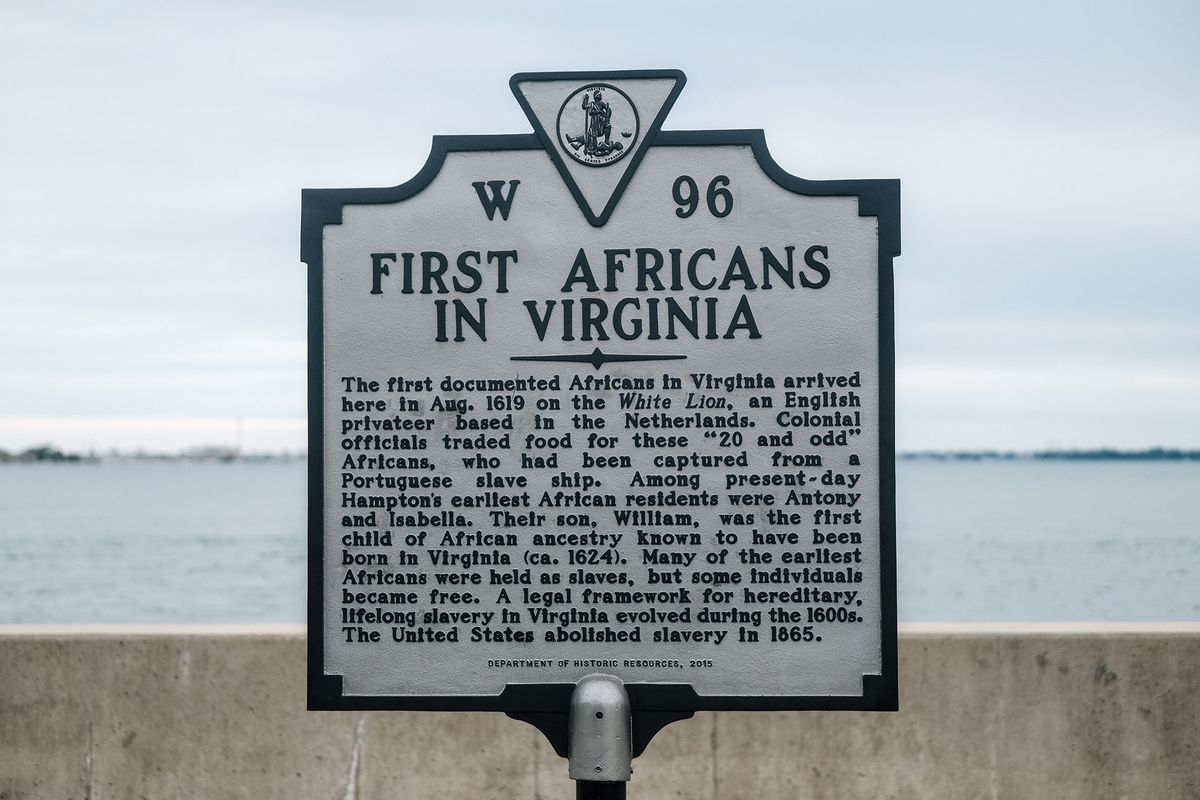What is the 1619 Project and why is it so controversial?

A few minutes every morning is all you need.
Stay up to date on the world's Headlines and Human Stories. It's fun, it's factual, it's fluff-free.
The essay criticized the way American history is taught in schools by claiming that the country talked about liberty and equality at a time when hundreds of thousands of African slaves were not free or equal.
- In 2019, “The Idea of America,” an essay by Nikole Hannah-Jones, was published in The New York Times.
- The essay criticized the way American history is taught in schools by claiming that the country talked about liberty and equality at a time when hundreds of thousands of African slaves were not free or equal.
- The 1619 Project, which included the essay written by Hannah-Jones, is now being used by schools around the country as part of their curriculum.
- The project reexamines many respected American figures, including the founding fathers and Abraham Lincoln. It specifically criticizes their response to the slave trade and issues related to Black equality.
- Now, two years after the release of the project, Republican lawmakers want to ban the 1619 Project from schools.
What exactly is the 1619 Project?
- The project takes its name from the year that a ship to Virginia carrying African slaves supposedly arrived in the US, an event the project calls “the moment [America] began.”
- Jake Silverstein, the editor of the project, explained that the goal was “to reframe American history” and “place the consequences of slavery and the contributions of black Americans at the very center of the story we tell ourselves about who we are as a country.”
- The project has come under intense scrutiny, particularly from Republicans who argue that some of the claims made by the project aren’t correct.
- Though some of the criticism was political, many academic historians pointed out inaccuracies with the articles published in the project.
- One of the project’s central ideas is that the founding fathers wanted to be independent from Britain so that slavery could continue.
- “This is not true,” five historians stated in a letter to The New York Times. “If supportable, the allegation would be astounding—yet every statement offered by the project to validate it is false.”
- Even with this controversy, The Pulitzer Center, a nonprofit based in Washington, DC, created lesson plans and reading guides for classrooms based on the project.
- At the end of 2019, the Pulitzer Center announced that thousands of classrooms were using their materials to “frame discussion of The 1619 Project.”
What have Republicans said?
- On April 29, Senate Minority Leader Mitch McConnell and 38 other Republicans sent a letter to the Secretary of Education, Miguel Cardona, calling the project “propaganda.”
- Three bills were recently introduced by state legislators in Arkansas, Iowa and Mississippi. These legislators argue that the lessons and the project itself misrepresent America’s history.
- The Arkansas and Mississippi bills call the 1619 Project “a racially divisive and revisionist account” while the Iowa bill says that it “attempts to deny or obfuscate the fundamental principles upon which the United States was founded.”
- If passed, these bills would mean that school districts that use the curriculum within those states would lose part of their funding.
What was Hannah-Jones’ and the Pulitzer Center’s response?
- In an interview on MSNBC, Hannah-Jones responded by saying, “the truth is too difficult for apparently our nation to bear and that we’re far too fragile to be able to withstand the scrutiny of the truth."
- Mark Schulte, the chief executive officer of the Pulitzer Center, believes that Republicans who want to ban the project from being used in schools don’t understand its purpose.
- “It’s deliberately provocative,” said Schulte. “It’s the kind of thing teachers love, because it gets students thinking, it gets them debating.”
Have a tip or story? Get in touch with our reporters at tips@themilsource.com




Comments ()